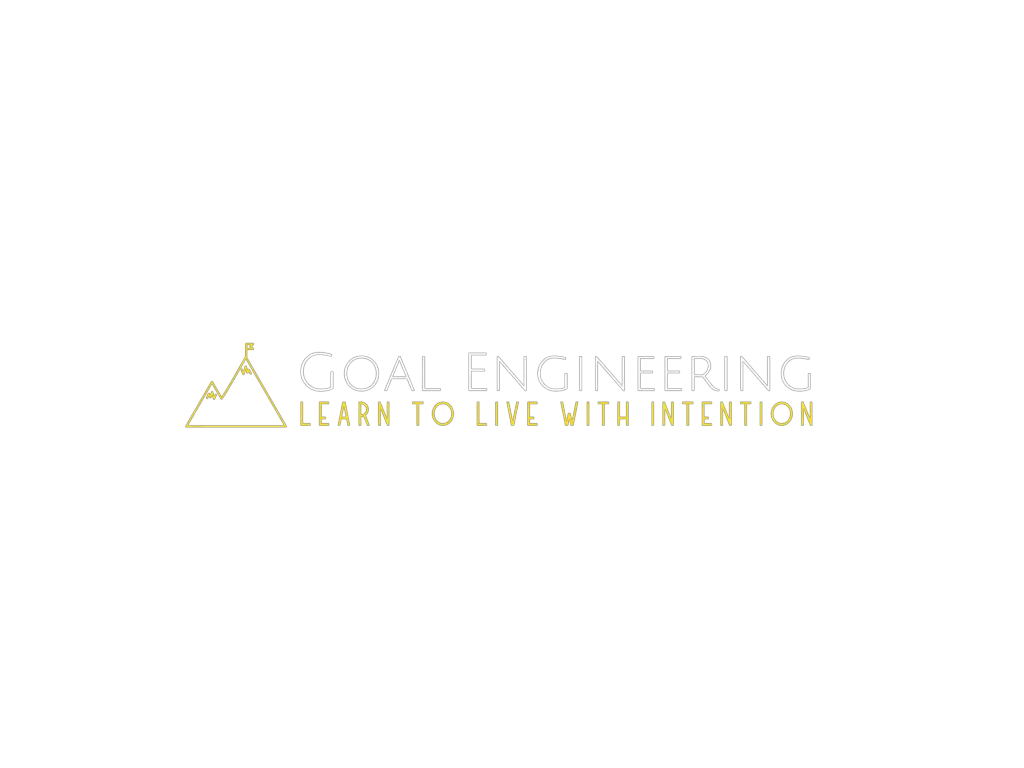Nobody reaches 100% of their goals all the time. Everybody fails, and sometimes more than we’d like to admit. This might be discouraging, but it doesn’t have to be if you learn how to get through it. That’s why in this article, I want to teach you how to deal with not achieving your goals.
When you fail to achieve your goals, follow these three steps to get through it:
- Accept whatever feelings come and let them run their course.
- Review what you got wrong and see what you can learn from it.
- Use the lessons you discover to make a new, more attainable plan.
Let’s dive right into it and see how each of these steps works.
1. Allow Yourself to Feel However You Feel
“Life is a series of natural and spontaneous changes. Don’t resist them; that only creates sorrow. Let reality be reality. Let things flow naturally forward in whatever way they like.”
― Lao Tzu
In 2019 I lost my full-time job. I had a family and it was horrendous to try to cope emotionally. Dealing with the pain of my failure and the loss of our income was almost too much to bear.
I’d failed terribly at the goal of providing for my family and especially at the goal of increasing my income. I’d even taken a nosedive in that regard!
I had plans in place to recoup my income and started working on them right away. But the pain of what I was going through was a lot to deal with.
That’s when I learned that it’s much easier to get through tough times when you just let yourself feel whatever comes up without resisting emotions. You might call it the stages of grief, but anger, fear, pain, denial, and others are all perfectly understandable in situations like these.
The feelings when you don’t achieve your goals might not always be as intense as the feelings I had when I lost my job. But there will always be something to feel and you better not sweep it under the rug. Otherwise it will just come back another time but be bigger and nastier.
I’ve since learned a lot about accepting emotions rather than trying to fight them. It’s incredibly freeing to recognize that there is no such thing as a “bad” emotion. When you stop resisting and accept how you feel, you recover much faster.
So let your heart feel whatever emotions come up when you fail a goal. Write ideas about how to improve if they come, but focus on taking some time off to just let the dust settle. It’s much easier to pick yourself up and keep going if you’ve given yourself time to heal.
And although it sounds strange to say the word “heal” when referring to goals, it’s important because it’s a way of caring for yourself. When you have self-compassion, you actually achieve much more than when you’re too hard on yourself.
Remember, your emotions are not the enemy. They give you important information about how easy or hard to be on yourself. And right after you fail is usually the time to go easy on yourself. But only for a time.
2. Learn From Your Mistakes
“We do not learn from experience… we learn from reflecting on experience.”
― John Dewey
Emotions are your friend and you can let them have the time they need to run their course. But don’t give them all the time in the world.
While it’s good to not fight emotions so hard, it’s also good to re-engage your logical mind. When something goes wrong, your amygdala (or emotional brain) sort of takes over and blocks your prefrontal cortex (or logical brain) from doing its job.
If you’ve ever acted irrationally when you’re hungry, you’ve experienced this.
There is a way to bring logic back into it and let your emotions and thoughts work together for your good. It’s a simple mindfulness practice that involves asking yourself a couple of questions:
- What am I thinking or believing right now?
- What is the truth about what’s really going on?
When asking the second question, you can find the truth by looking for evidence.
Let’s say you recognize that you’re believing that you’re stupid because you failed a test. Looking at the evidence, you might see that you actually recently aced a different test in another class. And it might come to your mind that this is actually just one of your worst subjects. You slowly start to see the truth that you’re not stupid, the test and class are just hard.
Once you re-engage the prefrontal cortex you enable yourself to stop being stuck in a victim mindset and to start making your goals happen by getting into an action mindset.
This is when acceptance of your emotions and situation meets reality. You start to see that the world isn’t falling apart. You realize that you’ve taken plenty of time to feel the pain of failure and that it’s time to get back up and get going again.
At this point you want to ask yourself one more question:
- What can I learn from my failure?
It’s crucial that you take enough time to really think this through. That’s because when you do, and when you take what you learn and use it to achieve your goal on the next attempt, you effectively erase failure.
There’s no such thing as failure if you learn from your mistakes and try again, but this time smarter because you’ve analyzed them and extracted the lessons.
3. Get Up and Try Again by Using What You Learn to Make a New Plan That’s More Attainable
“The secret of life is to fall seven times and to get up eight times.”
— Paulo Coelho
There comes a point when you’ve missed the mark on your goals so many times that re-planning and trying again becomes second nature. But you have to take the right mindset into it and actually get up and try again for this to happen.
When I lost my job I learned some unexpected lessons. It hit me that I needed to have a better attitude, for one. But even more than that I discovered that it’s easier to have the right outlook when you’re around the right people and doing the right work.
It took this “failure” for me to realize that I wanted to set some pretty different goals than I had been working on.
I recognized that life was hard in my old job because it wasn’t a good fit for my greatest strengths and passions, even if I was following some of my strengths and passions.
Messing up and losing my job taught me the vital lesson that it’s best to do work and be around people that bring out the best in you. I discovered the importance of doing what’s best instead of something that simply “works” in order to be truly happy and productive.
I adjusted my plan, got to work, and made a career and environment change happen. Today, I still do some work in that old field, but it’s much more focused than what I was trying to do before. I also found a new career—creating websites—that I love. And I work for myself so I get to be with my family every day, which is a huge step up from the people I used to work for!
You might not find that your plan needs a complete 180-degree shift like mine did. If you fail to reach a weight-loss goal, for instance, you might want to keep that goal but decide to change the way you try to attain it. If you struggled to keep up with a running routine, maybe it’s time to consider dancing to shed those pounds!
This brings us to the two ways you can change your plan to help you deal with not achieving your goals:
- Change the outcome you desire. This means taking a hard look at where you really want to end up in every area of your life, including spiritual, relationships, finances, and fitness. If you’ve failed to reach your goal, does that mean that you’re climbing up the wrong ladder and it’s time for a change?
- Change the action steps that you’re doing to reach your outcome. Only do this if you realize that the outcomes you seek are still what you really want. If you’ve failed to increase your income, for instance, try a different way, like creating an online business.
Make sure as you build your new plan that it avoids the pitfalls that caused you to not achieve your goals the last time. If you didn’t stick to your action steps, make them more enjoyable, for instance. If you got close but didn’t quite make it, simply adjust your timeline.
With your new plan in hand that’s been tempered in the fire of failure, you’re ready to start again fresh with an even greater chance of succeeding this time!
Wrapping Up
“Most great people have attained their greatest success just one step beyond their greatest failure.”
Failing to accomplish your goals is no fun. It’s painful, embarrassing, and stressful. But it doesn’t have to last forever. Here are those three steps one last time that will help you deal with not achieving your goals:
- Let yourself feel whatever comes.
- Learn from your mistakes.
- Make a new plan then get up and try again.





